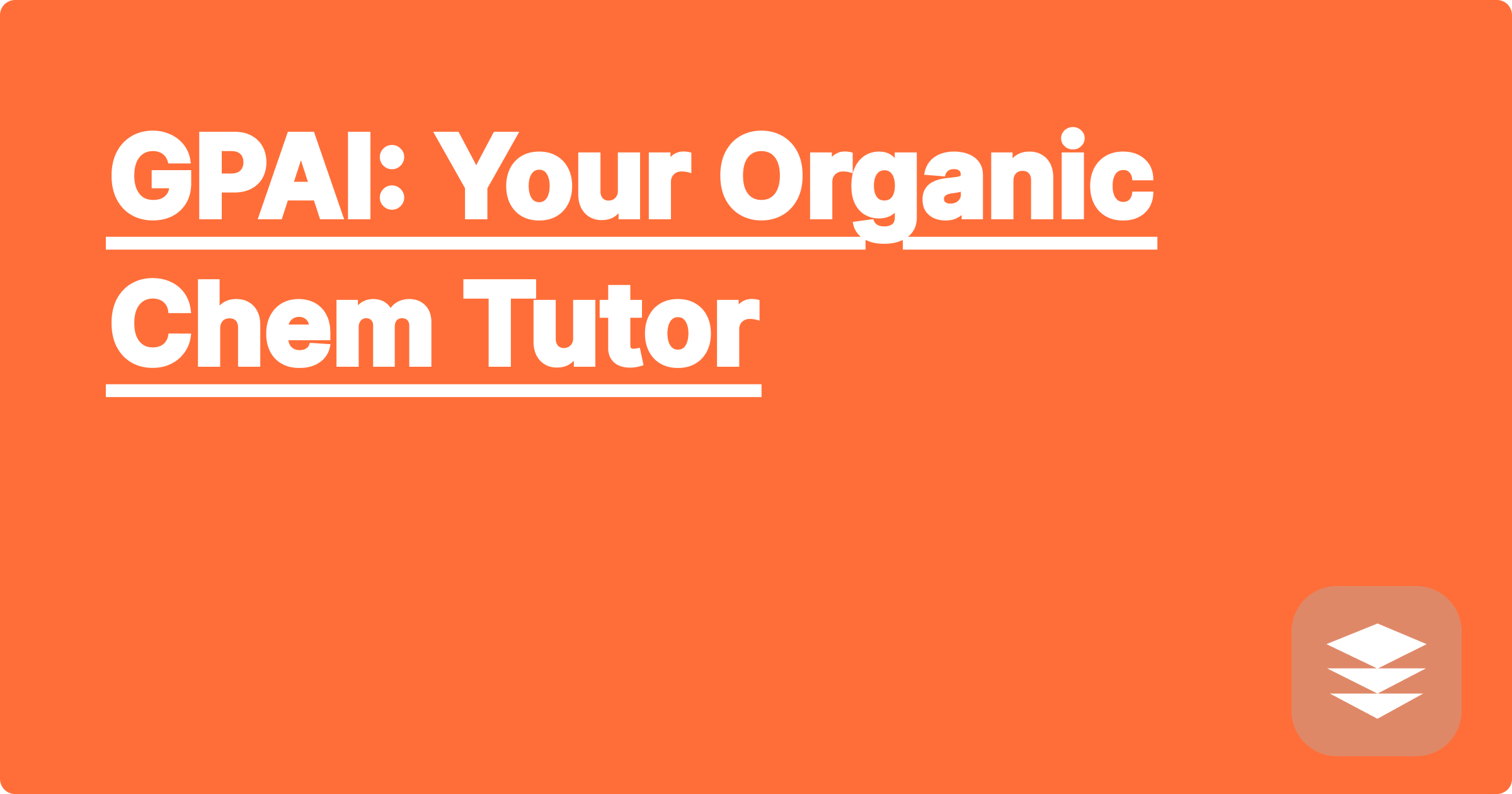
Organic chemistry, often dubbed the “weed-out” course, presents a formidable challenge for many STEM students. Its intricate concepts, complex reactions, and vast nomenclature can feel overwhelming. Fortunately, the rise of generative pre-trained transformer (GPT) models, often referred to as Generative Pre-trained AI (GPAI), offers a new avenue for mastering this challenging subject. These AI-powered tools can act as personalized tutors, providing on-demand explanations, practice problems, and even personalized study plans, effectively democratizing access to high-quality learning resources.
This accessibility is particularly crucial for STEM students and researchers, especially those facing limited access to traditional tutoring or struggling with complex concepts. GPAI can bridge this gap by offering 24/7 support, tailored to individual learning styles and paces. Mastering organic chemistry is often a gateway to advanced studies and research opportunities in fields like medicine, pharmacology, and materials science. Leveraging AI effectively can significantly impact academic success and open doors to future career paths.
Organic chemistry's difficulty stems from several interconnected factors. The sheer volume of information, including functional groups, reaction mechanisms, and stereochemistry, requires significant memorization and understanding. Visualizing three-dimensional molecular structures and predicting reaction outcomes adds another layer of complexity. Furthermore, traditional teaching methods often rely on rote memorization, which can hinder deeper conceptual understanding and problem-solving abilities. Many students struggle to connect individual reactions and concepts into a cohesive framework, leading to difficulties in applying their knowledge to novel problems. This challenge is further exacerbated by the rapid pace of many organic chemistry courses, leaving students feeling overwhelmed and struggling to keep up.
AI tools like ChatGPT, Claude, and Wolfram Alpha offer powerful solutions to these challenges. ChatGPT and Claude excel at explaining complex concepts in natural language, providing step-by-step breakdowns of reaction mechanisms and offering personalized feedback on practice problems. Wolfram Alpha, with its computational prowess, can predict reaction outcomes, generate molecular structures, and provide access to a vast database of chemical properties. By combining these tools, students can create a personalized learning environment that caters to their specific needs and learning styles. They can ask clarifying questions, request alternative explanations, and receive immediate feedback, fostering a deeper understanding of the material.
To begin using AI for organic chemistry, start by clearly defining your learning objectives. Are you struggling with specific reaction mechanisms? Do you need help with nomenclature? Or are you preparing for an upcoming exam? Once you have identified your goals, choose the appropriate AI tool. For conceptual understanding and problem-solving, ChatGPT or Claude are excellent choices. For calculations and data retrieval, Wolfram Alpha is ideal. Next, formulate your queries in clear and concise language. For example, instead of asking "What is SN1 reaction?", ask "Can you explain the SN1 reaction mechanism with an example involving a tertiary alkyl halide?". The more specific your question, the more targeted and helpful the AI's response will be. After receiving the AI's response, critically evaluate the information provided. Cross-reference the information with your textbook or lecture notes to ensure accuracy and solidify your understanding. Finally, practice applying the concepts you've learned by working through practice problems and seeking feedback from the AI.
Let's consider a specific example. Suppose you are struggling to understand the Grignard reaction. You can ask ChatGPT: "Explain the Grignard reaction mechanism, including the formation of the Grignard reagent and its subsequent reaction with a ketone." ChatGPT will provide a detailed explanation of the mechanism, showing the electron flow and the formation of the new carbon-carbon bond. You can then ask for specific examples, such as "Show the reaction of methylmagnesium bromide with propanone." ChatGPT will generate the reaction equation and predict the product, 3-methyl-2-butanol. You can further explore the reaction by asking about the stereochemistry of the product or the role of the solvent. For a computational example, you could use Wolfram Alpha to calculate the theoretical yield of a reaction given specific starting amounts of reactants. You can input the balanced chemical equation and the masses of the reactants, and Wolfram Alpha will calculate the expected mass of the product.
To maximize the benefits of AI in your organic chemistry studies, incorporate it into your regular study routine. Use AI to review concepts after each lecture, clarify confusing points, and practice problem-solving. Don't rely solely on AI; use it as a supplement to your textbook, lecture notes, and other learning resources. Actively engage with the AI by asking questions, seeking clarification, and testing your understanding. Experiment with different AI tools and find the ones that best suit your learning style. Finally, remember that AI is a tool, not a replacement for hard work and dedication. Use it wisely and combine it with effective study habits to achieve academic success.
To conclude, GPAI offers a powerful and accessible way to conquer the challenges of organic chemistry. By understanding how to effectively leverage these AI tools, STEM students and researchers can significantly enhance their learning experience, improve their understanding of complex concepts, and ultimately achieve their academic and professional goals. Start exploring these tools today and unlock your full potential in organic chemistry. Experiment with different prompting techniques, explore various AI platforms, and integrate these tools into your study routine. The future of learning is here, and it's powered by AI.
GPAI: Solve Physics HW Faster!
GPAI: Engineering Data Analysis